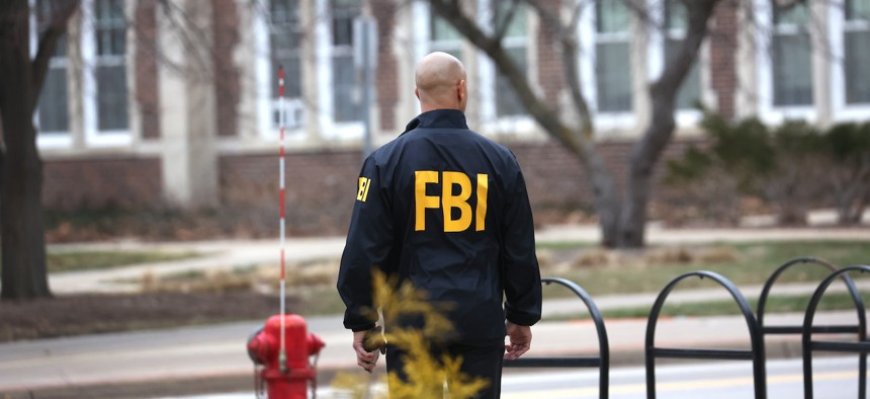FBI Raids on Critics: The Bolton Case and Its Implications for Free Speech
The FBI’s raid on John Bolton raises urgent questions about free speech, historical parallels to political raids, and the balance between national security and dissent.

The FBI’s unexpected raid on former National Security Advisor John Bolton earlier this month has sparked an intense debate in Washington and beyond. While federal officials describe the search as part of an “ongoing investigation into the handling of classified materials,” critics argue that the move represents something more troubling: a test of how far the government is willing to go in scrutinizing vocal critics of President Donald Trump’s administration.
The clash between national security imperatives and the right to dissent is not new in American history. Yet, the Bolton case feels different—more urgent, more polarizing, and perhaps more consequential for everyday citizens.
A Raid with Historical Echoes
The raid took place on August 12, 2025, at Bolton’s Bethesda, Maryland, residence. According to anonymous sources within the Department of Justice (DOJ), investigators were looking for communications tied to classified deliberations during Bolton’s tenure in the Trump administration.
This is not the first time U.S. authorities have raided a prominent critic under claims of protecting national security. During the Cold War, the FBI’s infamous COINTELPRO program targeted activists, journalists, and political leaders who challenged government authority. From civil rights figures like Martin Luther King Jr. to Vietnam War protestors, dissenters often faced covert surveillance and intimidation.
Civil liberties groups argue that the Bolton raid evokes a modern parallel. “The question isn’t just what the FBI is looking for—it’s what message this sends to anyone who dares challenge those in power,” says Mariah Trent of the American Civil Liberties Union (ACLU) in an interview.
Free Speech at a Crossroads
Bolton has long been a divisive figure. Known for his hawkish foreign policy views, he emerged as one of Trump’s fiercest critics after leaving office in 2019. His memoir, The Room Where It Happened, released in 2020, offered blistering insights into the inner workings of the White House.
Civil liberties experts argue that targeting such a prominent voice sets a dangerous precedent. “Even if the DOJ insists this is about safeguarding classified material, the optics are clear—criticism of the president carries risks,” explains legal historian Dr. Jonathan Mayer.
A deeper concern lies in what legal scholars call the “chilling effect.” If government raids are increasingly aimed at those who publicly oppose policy, ordinary citizens may hesitate before speaking out.
Lessons from Past Political Raids
Historical comparisons shed light on why this matters. The Palmer Raids of 1919–1920, for example, saw federal agents sweep through immigrant communities under the guise of stopping anarchist plots. Thousands were detained without trial, and public debate was stifled. Similarly, the Nixon administration used federal agencies to harass opponents during the Watergate era.
The Bolton case, some argue, may be the 21st-century version of these episodes. While details remain redacted, the resemblance to past overreaches of executive power cannot be ignored.
For a broader context on how free speech battles have played out historically, a review of the Library of Congress archives offers striking evidence of how dissenters were often painted as threats before later being vindicated.
The Human Side of the Story
Behind the headlines are the stories of individuals caught in the crossfire. Several former mid-level bureaucrats, speaking on condition of anonymity, described a climate of fear within federal agencies. “People are whispering in hallways again, just like in the 1950s,” said one retired State Department official. “If Bolton can be raided, no one feels safe.”
Civil society organizations note that such fear undermines democratic values. As noted by the Electronic Frontier Foundation (EFF), which advocates for digital privacy rights, increased surveillance and political targeting erode trust not only in government but in the institutions designed to protect freedom.
What It Means for Everyday Americans
While Bolton’s high-profile raid grabs headlines, the broader impact may land squarely on ordinary citizens. If free speech protections weaken under the weight of national security claims, everyday political discussions—whether in workplaces, universities, or online forums—could face new scrutiny.
The balancing act between safeguarding the nation and protecting constitutional freedoms is precarious. Each new raid, subpoena, or investigation against a government critic shifts the equilibrium.
Looking Ahead
The DOJ insists the Bolton raid was lawful and necessary, but unanswered questions linger. What exactly were agents looking for? Were other critics also being investigated quietly? And how will this shape the future of dissent in America?
If history is any guide, the consequences could ripple for decades. Just as the JFK assassination files still fuel debates about government transparency decades later, the Bolton raid may one day be seen as a turning point in the American struggle between security and liberty.
For now, what’s certain is this: the raid has reignited one of the oldest and most vital questions in the republic—how free is free speech when it collides with state power?











